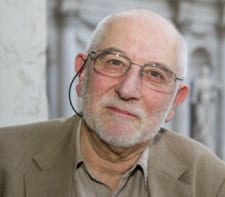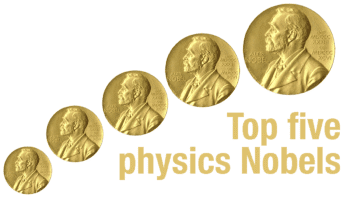Nick Horvath is a professional basketball player for New Zealand’s Wellington Saints and Australia’s South Dragons, and a member of the Tall Blacks, New Zealand’s national team. As an undergraduate, he studied both English and physics while playing basketball for Duke University in the US

How did you get into basketball?
That’s an easy one: I was tall. I had zero interest in sport at a young age and was pushed into basketball against my will when I was about eight. I hated it. The next year, however, I was so much taller than everyone else that in my first game, even though I had no idea what I was doing, I could simply hold the ball above my head and shoot over everyone. I fell in love with basketball after that first game. If I had played badly that day, it is likely that I would not have played again in my entire life.
Why did you choose to study physics?
Neither of my parents were athletes. The only thing they stressed as I was growing up was the importance of education. My father was a chemist and science-lover, and while I was in high school, he and I read a whole pile of physics books by the likes of Carl Sagan, Richard Feynman, Stephen Hawking, Paul Davies and Timothy Ferris. My favourite was In Search of Schrödinger’s Cat by John Gribbin; I have great memories of walking the trails through the woods near my house reading that book and talking about the marvels of physics with my father. Therefore, going into university, I had a love of physics (at least in theory) even though I had only taken one class in physics in high school. I enjoyed physics at Duke University tremendously. No-one in the basketball programme thought it was possible to do a physics degree while playing basketball, but I never got to a point where I thought I would not be able to do it, even when I was studying quantum mechanics. I will admit, however, that trying to fit in hours of physics homework while playing basketball and studying English at the same time was a huge time-management challenge.
How did you balance the time pressures?
English has always been my real love. I have been a voracious reader and writer since I was eight years old — I read all 1200 pages of Stephen King’s The Stand when I was nine. So at Duke, doing the English work was easy; physics, more difficult; basketball, incredibly taxing physically, mentally and emotionally. I enjoyed losing myself in my academic work as an escape from the pressure and spotlight of basketball. I had time management down to an art form, and used the free tutors afforded me through my scholarship almost daily. The only time I ever had trouble getting my work done was when the basketball season was over — I had so much free time on my hands I could not force myself to do any work.
What did you do after your degree?
I did not plan on playing basketball after Duke, but when my senior season was over, I realized I did not want to retire from it. Therefore, I got an agent, trained hard during the summer of 2004 and finally ended up getting a two-week trial for the West Sydney Razorbacks in Australia. I had a great first year and have been playing there ever since. There is also a short season in New Zealand that does not overlap with the season in Australia and I have played in that league for four years now as well. My wife is a New Zealander and we will probably end up living here for rest of our lives. I never planned on physics as a career simply because I did not enjoy working in a lab. I have found that I like physics theory much more than the grind of true physics work.
How does your physics help you now?
There is not much direct correlation between physics and professional sport. In the past, I tried to explain to a coach the physics involved in trying to box out a player who outweighs me and who is crashing the offensive boards at a full sprint. Coaches want to hear no such thing. They do not care if it is physically impossible, they just want you to get the ball — laws of physics be damned. Indirectly, knowing how the world around me works is something that will always be beneficial and that I will always enjoy.
Do you keep up with any physics?
I have a continued interest in physics and love reading about new breakthroughs. My father is an amateur astronomer and we use his telescope when I visit. He is always sending me articles about new discoveries in astronomy and cosmology, and anything else physics-related. Occasionally, I have the urge to work through some equations. I find a deep satisfaction in slogging through a difficult physics problem and coming up with the correct solution, but I do it purely to keep the gears of my brain greased — and to prove that I still can.
What do you plan to do next?
I have always wanted to teach and write. For the last 10 years I have been an English (or possibly physics) teacher trapped in a basketball player’s body. In truth, I am one of the few athletes I know who is looking forward to retirement from sport so that I can move on to another facet of my life. I plan on teaching in high school and writing novels (and most likely a basketball memoir).



